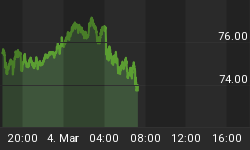The U.S. stock market had its biggest two-day advance in the last five years, sending the S&P 500 up 4.4% since Tuesday. The questions investors are asking: Will this trend continue, and is now a good time to get on board for an end of the year rally?
To answer those questions, I always turn to the fundamentals and ask if the market is cheap or expensive at this juncture. With 90% of the S&P companies now reporting, it is clear that not only is there a recession in homes and autos, there's also a recession in overall earnings growth. Operating earnings for Q3 were down 8.5% from Q3 of 2007. With the market now trading at 17.26 times earnings, stocks have yet to price in a continued contraction in earnings growth in 2008. In fact, according to MSN, major banks have managed to ignore the economy's precarious position and still presage an increase of about 15% to 30% profit growth next year. That ebullient prediction ignores the absence of capital available to banks and consumers to keep the economy growing.
Why the continued optimism on Wall Street? My guess is the reliance on the Fed to bail out banks and consumers with more rate cuts. In the short term, I find that hope unfounded. The reason for my pessimism is because even with the 75 bps of Fed rate cuts to date, we still see LIBOR misbehaving. Dollar LIBOR is up to 5.23%, and the TED spread (the difference between three-month treasury bills and three-month dollar LIBOR) has widened to 2.11%, the greatest spread since August 20th. If this key interest rate continues to rise, it will nullify any rate reductions enacted by the Fed. That spells little relief for the credit crisis in the immediate future.
The mantra from those who have so far ignored the problems with this economy has been that gains from employment and income will offset losses in home prices and equities. However, it has been my contention that sooner rather than later, falling home values and the credit crunch will lead to payroll and income reductions. This morning, we learned that initial jobless claims jumped 23k to 352,000--the most since February. This trend in non-farm payroll growth most likely indicates consumers will now have to cope with falling real incomes.
It may be prudent to stay defensive until the market gets more realistic about 2008's earnings and GDP growth. Until then, any rally should be viewed as an opportunity to reduce exposure to consumer-cyclicals and technology.















